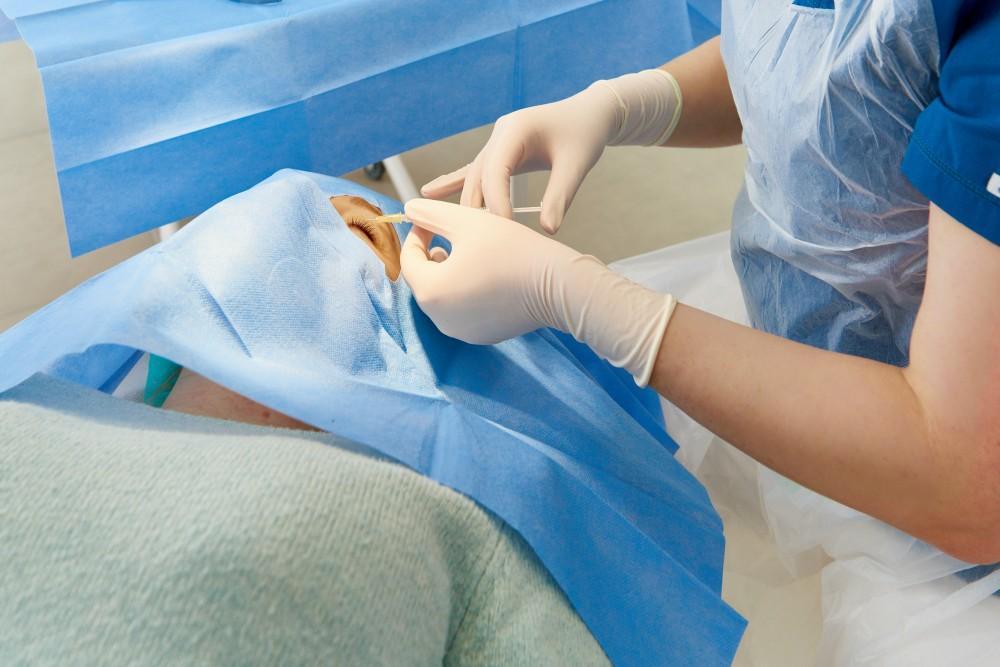
Why Do I Need to Get My Eyes Dilated?

If you come to see one of our ophthalmologists for an eye exam, the doctor may dilate your eyes as part of that exam. The good news is that it allows us to examine your eye structures to look for potential diseases and other problems. The bad news is that your vision may be fuzzy for a few hours afterward. Is dilation really necessary?
At Retina Specialists, with five locations around Dallas, Texas, our team of expert ophthalmologists wants to ensure that your vision is clear and your eyes remain healthy. That’s why they stress the importance of getting your eyes dilated when you come in for a comprehensive exam or with an injury or other potential problem.
We’d like to explain why dilation is so important.
How the eye looks
To understand how your vision is supposed to work, it helps to know something about the eye’s structure and each part’s function. The best way to learn is to follow light’s path.
Incoming light hits the eye’s surface, which is covered with a clear, curved, and tough membrane. While the clear area lets the light pass through, the curved area (cornea) protects the eye while focusing the light.
The focused light moves through the anterior chamber, a space filled with a fluid called the aqueous humor. Next, it travels through the pupil, and then through a lens that fine-tunes the focusing. Finally, it travels through the vitreous, another fluid-filled chamber, striking the back of the eye in a region known as the retina.
The retina converts the received images into electrical signals, which it sends to the brain through the optic nerve. Your brain decodes the image, allowing you to “see.”
The macula is the central 2% of the retina that registers your clear, central vision.
What is a comprehensive eye exam?
A standard eye screening simply evaluates your vision, and the doctor may prescribe glasses or contact lenses as a result.
A comprehensive eye exam, on the other hand, is a complete eye exam; it evaluates vision as well as the health of your inner and outer eye. Dilation is a critical part of the exam, as it allows the ophthalmologist to look at the inner eye structures and determine if there’s any malformation or disease.
Why is dilation included?
Your pupil’s normal reaction when exposed to light is to get smaller, so if our doctor just shines a brighter light into your eye, we won’t be able to see a thing. To dilate the eye, we use special eye drops that force the pupil to stay open despite the light. Now, we can see all the way to the back of your eye, including the entire retina, macula, and the optic nerve.
During a dilated exam, we can detect problems like a torn or detached retina (which, if not treated, could create a loss of vision), the development of an eye tumor, trauma, or malformed structures.
We can also diagnose and monitor common eye diseases:
- Diabetic retinopathy: blood vessels that leak, swell, or grow abnormally in the retina
- Detached retina: area of the retina pulls away from the connecting tissue
- Detached vitreous humor: often causes eye floaters (spots in vision)
- Glaucoma: damage to the optic nerve
- Age-related macular degeneration (AMD): protein or pigment buildup and unusual growth of blood vessels destroy the macula and central vision
- Cataract: clouding of your natural lens
Almost all of these conditions are painless, so you may be unaware you have a problem unless you get your eyes dilated.
What should I avoid if my eyes are dilated?
It usually takes 15-30 minutes for your pupils to open completely once the drops are in, and the effects last for about 4-6 hours, though everybody’s response is a bit different.
Dilating drops don't usually affect your distance vision, unless you're farsighted and don't wear glasses. What they do is make it hard for your eyes to focus on things close up. That means you probably won’t be able to read well, use your phone or computer, or do other near-vision tasks — unless you wear bifocals or reading glasses. So on the day of your exam, one way to avoid missing work is making your appointment for later in the day.
Dilating drops also increase your light sensitivity, since the pupils remain open. Definitely wear sunglasses to reduce the glare, and try not to look at any bright lights. You also shouldn’t drive, both because of the glare and because parts of your vision will remain fuzzy for a few hours.
If you haven’t had a dilated eye exam in a while, or it’s time for your next one, Retina Specialists is the place to go. Give us a call at any of our offices to set up an appointment for your exam, or book online with us today.
You Might Also Enjoy...


How Aging Impacts Retinal Health

Vitrectomy: The Outpatient Surgery That Can Save Your Vision

When to Seek Treatment for Eye Trauma

What Happens During a Diabetic Eye Exam?


